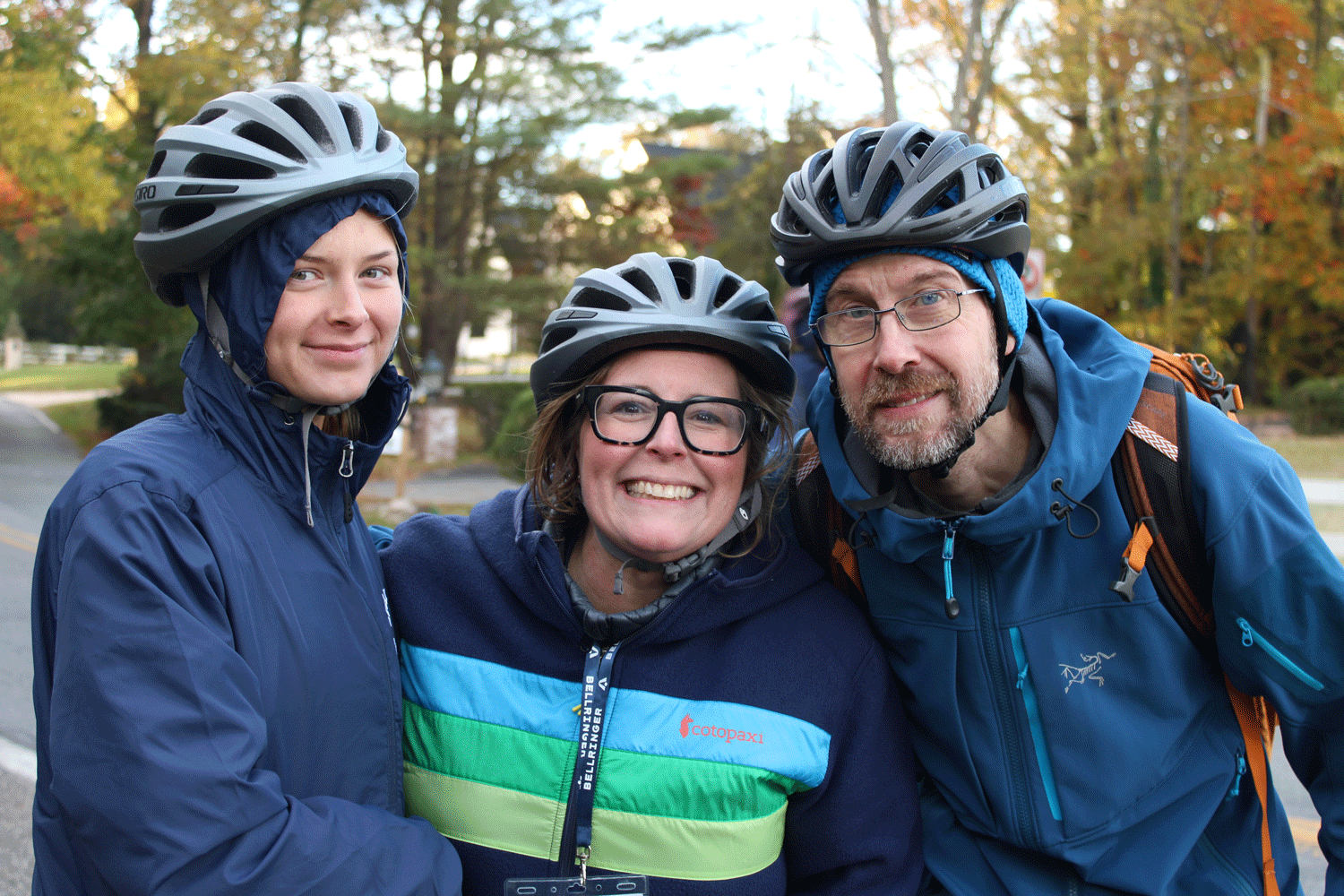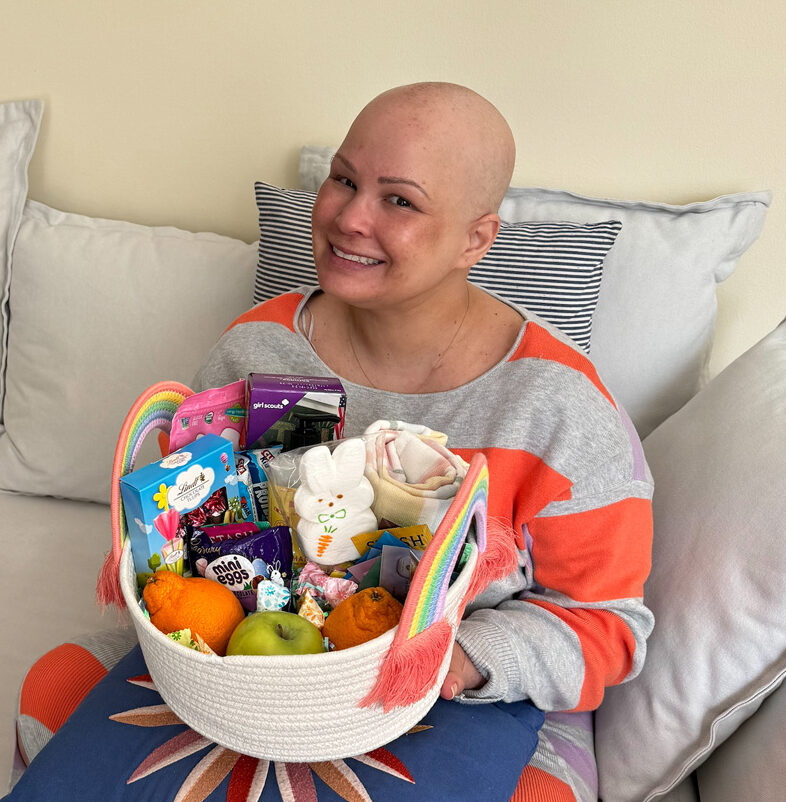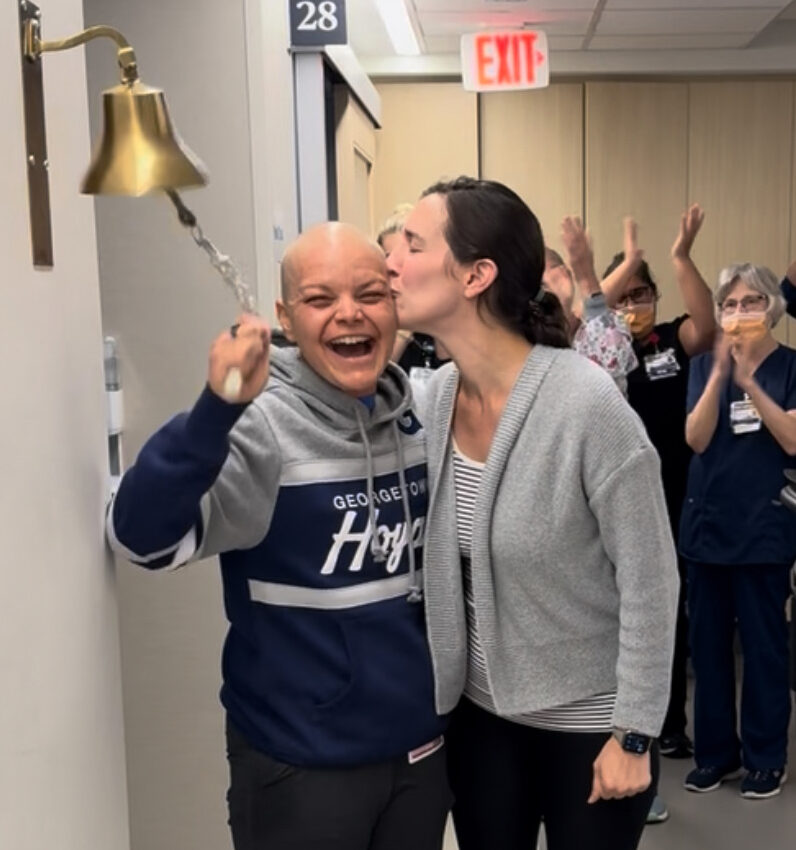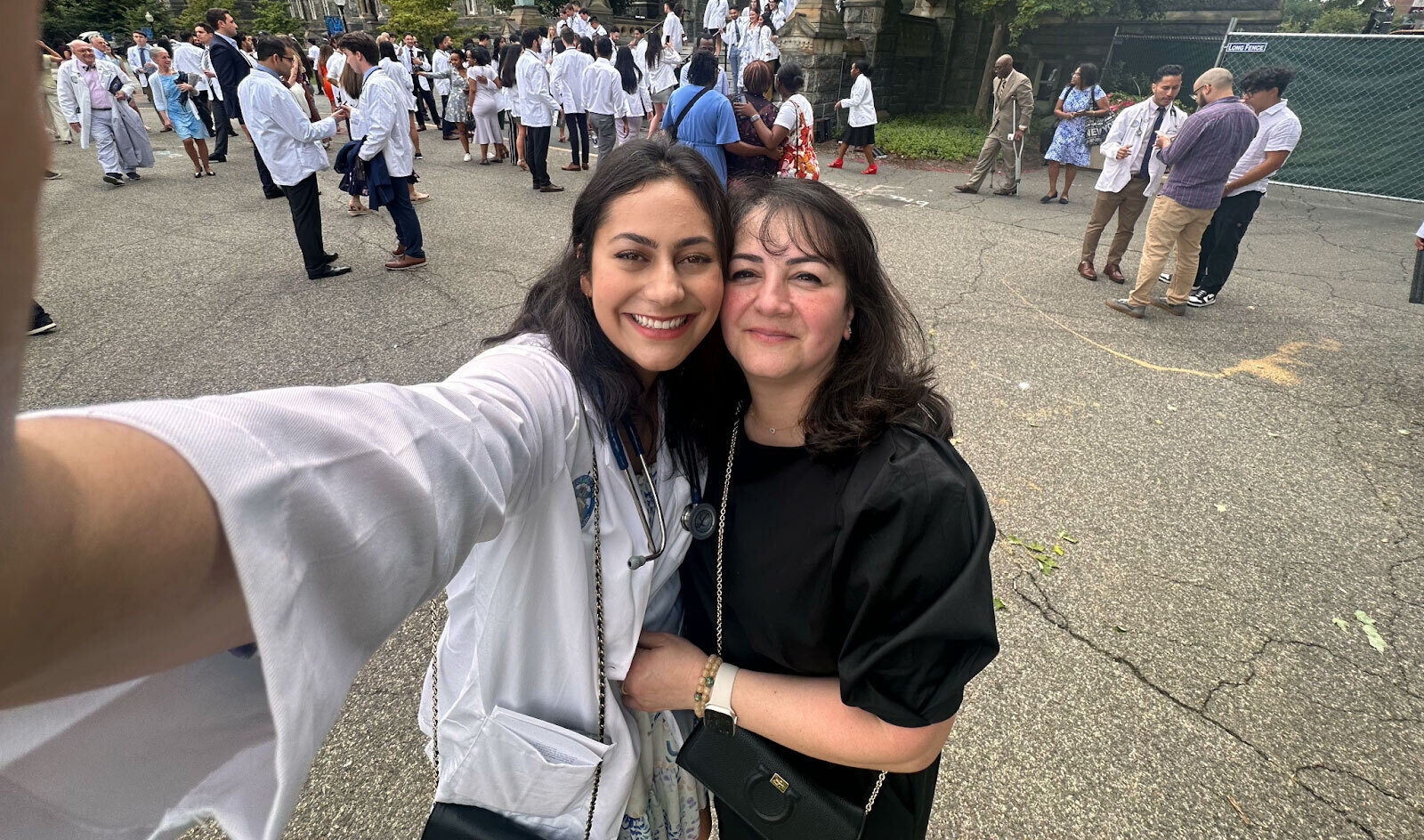
Leila Mahdavi, a medical student at Georgetown University’s School of Medicine (GUSOM), has spent the summer as one of the first BellRinger Fellows — a program where students receive a summer research stipend and join a team within Georgetown University’s Lombardi Comprehensive Cancer Center to expand their academic research experience and play an important role in understanding and furthering cancer treatment and care.
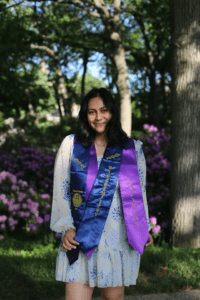 Born in Detroit, Michigan, Leila’s early years were marked by frequent moves. Her family lived in Tennessee, California, and Wisconsin, where she spent her formative years from middle school to high school. Despite the many relocations, Leila embraced each new environment and cultivated a broad perspective on life. Her academic journey took her to Wellesley College, a historically women’s college outside of Boston, where she discovered a love for learning that transcended traditional academic boundaries.
Born in Detroit, Michigan, Leila’s early years were marked by frequent moves. Her family lived in Tennessee, California, and Wisconsin, where she spent her formative years from middle school to high school. Despite the many relocations, Leila embraced each new environment and cultivated a broad perspective on life. Her academic journey took her to Wellesley College, a historically women’s college outside of Boston, where she discovered a love for learning that transcended traditional academic boundaries.
“I learned to love how to learn there,” Leila reflects. “I knew that I always wanted to go into medicine, but as I matured and started doing more clinical and research work, the picture of who I wanted to be became clearer.”
Leila’s undergraduate honors thesis in biochemistry and pediatric hematology oncology research ignited her passion for oncology and wet bench research. This experience was further solidified during her post-graduate work at Children’s Hospital of Philadelphia, where she fell in love with the idea of discovery and curiosity, finding new ways to serve patients through research. “I worked as a research tech, and it was there that I realized I loved the process of discovery, the curiosity that drives research, and the potential impact it has on patient care,” she explains.

A pivotal moment in Leila’s life came from her family’s Iranian heritage. Regular visits to Iran included trips to children’s hospitals, where during her trips, she would bring items such as socks for children undergoing chemotherapy. “Socks are something people don’t really think about, but for kids getting chemo, having a cute pair of socks can be comforting. It’s a small gesture, but it means a lot to them.”
Those experiences deepened her desire to pursue oncology research. “Almost everyone has been affected by cancer in some way,” she says. “It’s a personal and intimate battle, and it would be an honor to support patients and their families through this journey. Cancer research combines the emotional, clinical, and scientific aspects of care, which is something I deeply value.”
Leila’s dedication to holistic and interdisciplinary care drew her to GUSOM. “The concept of cura personalis really resonated with me,” she explains. “It’s about providing care in multiple dimensions—clinically, emotionally, and through research. At Georgetown, I found an environment that values this holistic approach to medicine.”
As a BellRinger Fellow, Leila’s summer research focuses on ER-positive breast cancers and the role of natural killer (NK) cells in targeting ER-positive breast cancer cells. “My project aims to find better ways to treat these cancers by leveraging the body’s immune system, particularly the innate immune system. The innate immune system is the first line of defense, recognizing foreign cells and signaling the adaptive immune system to respond. NK cells are crucial in identifying and destroying malignant cells. However, ER-positive breast cancers show low infiltration of NK cells, which allows them to evade the immune system. We are trying to understand the mechanisms behind this evasion,” she elaborates.
 Leila’s day-to-day work involves isolating NK cells from donor blood samples and conducting experiments to understand their interactions with cancer cells. Her research is guided by Dr. Miriam Jacobs, an expert in the field at Georgetown Lombardi.
Leila’s day-to-day work involves isolating NK cells from donor blood samples and conducting experiments to understand their interactions with cancer cells. Her research is guided by Dr. Miriam Jacobs, an expert in the field at Georgetown Lombardi.
Beyond the lab, Leila is excited to volunteer for BellRinger for the first time this fall. “Participating in BellRinger is a reminder of why I’m doing this research and why I want to be a doctor,” she reflects. “It’s about hearing stories, appreciating them, and understanding the importance of the knowledge we’re gaining. BellRinger represents a powerful movement that brings together researchers, clinicians, patients, and the community to fight cancer. It’s an honor to be part of something so impactful.”
Funded by the family of Elena and Barney Byrd, the Mitchell BellRinger Oncology Research Fellowship Program was named in honor of Georgetown University School of Medicine, Stephen Ray Mitchell, MD, Dean Emeritus, who has played a pivotal role in the growth of medical student research during his tenure as Dean for Medical Education at Georgetown. The BellRinger Fellows program will continue to advance cancer research and mentor the next generation of researchers at Georgetown Lombardi.

